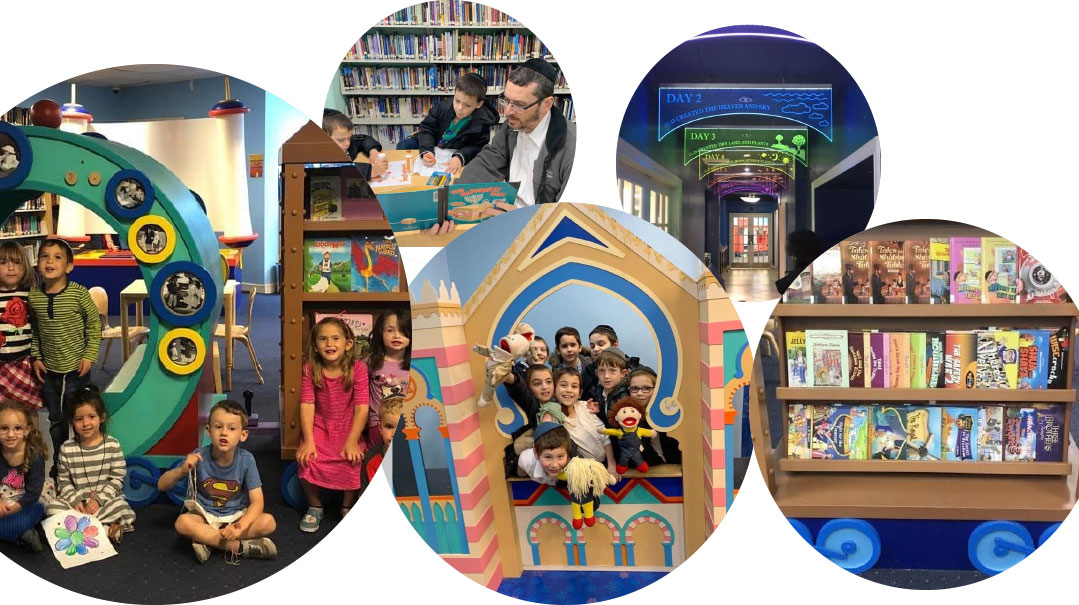Destigmatize Mental Health Issues


As told to Elisheva Appel
Name: Chani Schwartz
Dream: Destigmatize mental health issues
Location: Stamford Hill, London, UK
O
n the outside, my childhood seemed idyllic. My parents are distinguished members of our chassidic community, and as the oldest girl in a large family, I was capable, geshikt, and helpful.
Beneath the surface, though, I hid a chronic health problem. While we never discussed it openly, I understood that in the prevalent culture, my illness needed to be kept under wraps, lest others think less of our family.
If my condition wasn’t shameful enough, I endured years of abuse at the hands of a frequent visitor to our home, cementing my belief that there was something wrong with me. I knew I wasn’t good enough, and that if people got to know the real me, they’d never accept me.
Though an outgoing person by nature, my grim life circumstances stifled my personality, and I was very reserved as a teen. Only during the later years of high school did I begin to come out of my shell, slowly exercising my natural leadership abilities, and becoming a sounding board for people to spill out their worries to. Ironically, despite my secret brokenness, I became the person who took care of everyone else.
Eventually, the double life I was living began to catch up with me. I began to open up a little about my illness, although I still felt unable to tell the whole truth. I’d give half-truths, omitting or distorting details to make the facts unrecognizable. In time, people began to realize that the pieces didn’t add up — I was fabricating parts of my history.
Trying to ground myself, I went to therapy for a few years. It was during therapy that I was first able to open up about, and ultimately come to terms with, the abuse I’d endured. Slowly, I realized my illness wasn’t my fault, and I began to heal.
I learned that the many negatives I “knew” to be the truth about myself were merely acquired perceptions that I could choose to discard. I finally began to understand that it’s okay to talk about your reality, own your story, and become the person that you alone were meant to be.
That was when I decided I wanted to do something to help people going through emotional and mental challenges.
I wanted to help the people who were strong enough to want to help themselves.
My efforts started slowly. As a high school teacher, I began to develop a reputation as someone people could talk to. First students, and then students’ parents, began to open up to me, and I helped mentor them through various challenges.
About two and a half years ago, I learned about the incredible work of Chazkeinu. Founded by Zahava List, it’s an organization that provides peer support for women dealing with mental or emotional struggles. I was blown away by Zahava’s revolutionary approach to mental health. She was so open about hard-core mental-health issues, and I learned from her how a support network makes all the difference in a patient’s recovery. I was intrigued by Chazkeinu’s Shabbatons, twice-weekly phone conferences, and support activities for people on a journey to mental and emotional health.
Carried away by enthusiasm, I resolved to bring Chazkeinu to London. I knew mental health issues are everywhere, but British people are famous for their reticence; in London, we simply don’t talk about these things.
But I was determined, and decided to start off boldly. I recruited several cofounders and placed an ad in the local news sheet to announce that we were launching an offshoot of Chazkeinu.
While people thought the idea was nice in theory, there were many naysayers: “No one will come; it will never work.”
I was astonished, therefore, at the number of calls the ad generated. People were interested, but afraid — they didn’t want the label that joining the group would affix to them.
Patiently, I explained the premise: We don’t believe in any stigma surrounding mental health. You’ll be surrounded by people who understand you, people for whom you don’t need to put on a show. Most importantly, I stressed the complete pact of confidentiality under which we operate.
Our first event, a boat ride, had 14 participants; I’d been sure we wouldn’t have more than five. Some were local, but others traveled from far — one even came from Manchester, a three-hour drive away.
Afterward, one participant left me a voice mail telling me that for the first time in her life, she’d had the opportunity to view herself as a person with something to bring to the table. For the first time, her issue hadn’t defined her.
Since then, we arrange events once a month. With the help of the local Bikur Cholim organization, we arrange facilitated therapy sessions such as laughter therapy, or simply crafts, trips, or meals at restaurants.
Now, we have more than 20 people joining each month’s event. And I’m confident that even if some people don’t have the courage to call us just yet, the awareness that such a program exists is a comfort for them.
Still, some continue to discourage us, telling us that our efforts are futile, and we’ll never really take off. As an experienced mentor, I’ve learned to hear what they’re not saying, and come to realize that people who bash the idea often have a mental issue themselves, or a family member who has one. Instead of admitting that they aren’t brave enough to join, they denigrate the idea. Some of those naysayers have actually come around and joined the organization, and once they do, their whole mindset changes.
Eventually, we hope to export the concept to other communities around the world, and recruit representatives in every town, so people grappling with a problem will know immediately to whom to turn.
With all that we do, the ultimate goal is the same: to make people understand that there’s no shame in mental or emotional illness. It’s not something we’ve caused — it happens to us. There’s so much help out there, no one deserves to live in a bubble of pain.
Twenty years ago, genetic issues like Down syndrome were hidden and stigmatized, and now we look back in disbelief at those benighted attitudes. My dream is that in years to come, we’ll look back and wonder how we ever regarded mental illness differently than physical illness.
Earliest dream:
I always wanted to help people, despite being sick since preschool. For as long as I can remember, I assumed I was going to do that by being a teacher. I didn’t see a career path other than in the typical classroom setting; teaching, mentoring, or organizing extracurricular activities.
An unrealistic dream:
It’s a pipe dream, but I’d love to create rehab centers in different cities for frum people who need a place to be for a few weeks to recover from a trauma, to reorient themselves after a hospitalization, or to simply take a break to sort out their problems — really, anyone for whom once- or twice-a-week therapy doesn’t cut it. These houses would have therapists and programs to help people get back to themselves as quickly as possible.
A historical person I dream of meeting:
Rochel Imeinu. I’ve always wanted to ask her how she made it through life. How did she pull through when her sister was having one baby after another? How did she avoid becoming bitter? My younger sisters all have kids, while I experienced years of disappointment. The mefarshim say Rochel carried herself with such grace — how did she do it?
(Originally featured in Family First, Issue 638)
Oops! We could not locate your form.












